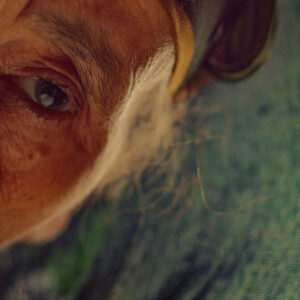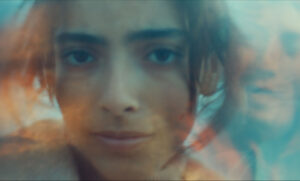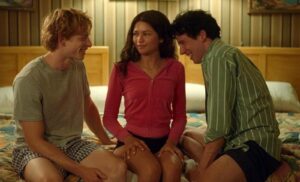An unorthodox hybrid documentary about excavating painful memories on both a private and national scale, The Mother of All Lies is the prize-winning sophomore feature of Moroccan film-maker Asmae El Moudir. Using several generations of her own family as cast, crew and unreliable narrators, the young director revisits some prickly home truths by literally reconstructing her former Casablanca neighbourhood in scale model form, complete with heavily stylised, slightly creepy, doll-like puppet versions of herself and her relations.
Interweaving personal memoir with wider social and political commentary, The Mother of All Lies joins a growing trend of formally inventive, semi-autobiographical documentaries including Rithy Pahn’s The Missing Picture (2013), Firouzeh Khosrovani’s Radiograph of a Family (2020) and Natasa Urban’s The Eclipse (2022). As a piece of investigative journalism it feels a little too fuzzy, but as an imaginative exercise in non-fiction cinema, it is consistently interesting and often hauntingly beautiful. Fresh from winning prizes in Cannes and Sydney, this engagingly original passion project screens at Karlovy Vary film festival this week.
Faced with an usually sparse family archive almost entirely devoid of photographs, apparently because her religiously devout grandmother deemed representative images “haram”, El Moudir hit on the inspired idea of rebuilding her old neighbourhood in miniature. Constructed by her father Mohammed a former builder, this meticulously detailed mini-medina is a dazzling piece of work, and a major character in the film. It also becomes, El Moudir claims, “a place where secrets can be remembered.”
The traumatic, half-forgotten secret at the heart of The Mother of All Lies is the bloody civil unrest that erupted across Casablanca in May 1981, dubbed the “bread riots” as they were triggered by steep rises in basic food prices. This early forerunner to the Arab Spring uprisings met with stern resistance from King Hassan II’s autocratic government, who sent armed police and military units to quell the protestors, most of them unemployed youths from impoverished shanty towns surrounding the city.
The official death toll of “Black Sunday” was 66, the real body count more like 600. One of El Moudir’s teenage neighbours, Fatima, was among the dead. Thousands more suffered police brutality and long prison sentences, including two more family friends, Abdallah Zouid and Said Masrour, who appear prominently in her film. The massacre was downplayed by the authorities at the time, though El Moudir reports that a former football field in her old neighbourhood that was once used as an anonymous mass grave for slain rioters has since been turned into a memorial.
As she assembles The Mother of All Lies, El Moudir intercuts between the staged puppet scenes and fractious backstage discussions with her family, notably her fearsome grandmother Zahra. Besides violently objecting to her “deformed” puppet self, this flinty matrrach also berates her granddaughter for dressing like a “whore”, and other imaginary sins. “Stop saying you’re a film maker!” she hisses, “you shame me in front of the neighbours.” While these conflicts add enjoyably bitchy spark to EL Moudir’s film, they eventually start feel a little too conveniently dramatic, almost as if scripted and staged. That may be unfair, but Zahra certainty seems to relish playing her stage villain role to the edge of self-parody.
Credit is due to El Moudir for throwing cinematic light on the 1981 bread riots, which have been largely forgotten outside Morocco. But her treatment of this emotionally charged material feels frustratingly vague at times, too bound up in soapy family politics and hazy personal issues. The Mother of All Lies is light on detail, offering too little explanatory context for the uprising, or for the suffering of victims like Fatima, Abdallah and Said. That said, this commendably off-beat documentary still succeeds as a compelling sensory experience, couching its superb Lilliputian production design in evocative sound design, music, poetry and the director’s own dreamlike voice-over.
Director, screenwriter, producer, editor: Asmae El Moudir
Cast: Asmae El Moudir, Zahra, Mohamed El Moudir, Ouarda Zorkani, Abdallah EZ Zouid, Said Masrour
Cinematography: Hatem Nechi
Set designer: Mohamed El Moudir
Costume designer: Ouarda Zorkani
Sound designer: Michael Fawzy
Music: Nass El Ghiwane
Production companies: Insightfilms (Morocco), Fig Leaf Studio (Egypt)
Sales: Autlook Films, Vienna
Venue: Karlovy Vary International Film Festival (Horizons)
In Arabic
96 minutes

.png)



I like this weblog very much, Its a rattling nice situation to read and receive information.Raise blog range